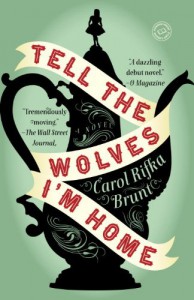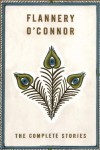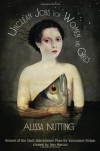Skinny Dipping Into Books
I like the rain. I want to have a spring bookworming rain party full out with wellies—but not those Hunter Boots; absolutely not—, with yummy airy things like puffed pastries, meringues, mini fluffy cheese cakes, mousse dessert, macaroon, biscuits, crepe, and Earl Grey tea, definitely Earl Grey tea. and Tillandsia. We'd have lots of "air plants". Lots! And We'd read, but not anything structured. We'd bring books, trade books, read out-loud, pass books around between sentences and paragraphs. We'd leave with books we hadn't discovered.
I like books like I like my Jazz; euphoric, dangerous, occasionally a bit manic, sorrowful, bleak, raging, mood-incongruent, mournful, unforgivingly ragged, symbolic in a quiet way, warm apple pie for the soul. Give me a Plath style. Yōko Ogawa, M. Roach,
Criteria: Not rated on likability of characters. Not objective. I like Moxie Soda; chances are you don't.
time spent in that before bed reading slot:
5-until blurry eye 4-Later than I intended, but I still kept to my extended, extended reading time 3-I really should have been to bed an hour ago 2-customary 30 minutes. 1-book. side table. eyes closed.
How are common themes handled?
5-With an aesthetic that repurposes everyday themes into something fresh. Think of Hole Celebrity Skin covered by Cat Power 4-there is a comfortable air of familiarly.
3-Deja Vu 2. No deviation from its mates 1. Devastatingly trite, redundant, and stale.
Where would you keep it post-reading?
5-Next to my bed. 4-it's the center piece of my favorite bookshelf 3. On my other favorite bookshelf, but it's a bit dusty over their 2-Great cheap bookends 1-It never made it out of the box marked 'moving'.
Emotional response-
5- Where is my teddy bear? Emotional-hangover 4- If I wasn't so emotionally stunted I'd cry.
3. Did James Cameron co-wrote this? Artfully contrived.
2- calculative emotional manipulation. This was literally written by James Cameron.1- I…feel…..nothing.
Mechanics (plot structure, voice, presentation, word choice, sentence structure, characters, writing style, pacing, and consistency):
5-Chanel 4-Prada 3-J-Crew 2-Gap 1-Old Navy
A decent, yet underwhelming book

Does anyone remember 1987? I don’t. I was 7….8. I remember AIDS though.
No one called it HIV. No one distinguished it. No one really, truly
even validated it. HIV literally pushed gays into the public sphere, and
unfortunately not in the best of ways.
I remember meeting this guy, this gay fellow when I was about
12. He had HIV; I was told this, like some stupid preemptive warning. I
remember looking at him with awe. He was young, beautiful in the
crispness of his pride and his flawless presentation. Even in a T-shirt,
he had control of a room. He was the first gay guy I ever met, and
rather than being scared, and not taking my distance, cautious of
catching HIV, I was enthralled just like our June. Oh, and he introduced me to colognes.
I was wearing some parody Fruit Of The Loom shirt that read, “freak of
the loom” or something equally stupid. I remember sinking back in my
room, tearing the shirt off, and resenting the buy outright. This
is how we were back then, so cautious, all jittery methodical in our
behavior.
Onward to the book…
It is centered on June’s relationship with her Uncle Finn and the
implications of both her infatuation with him and his AIDS status. It
focuses, however brief and ill constructed, on the family dynamics
altered both by June’s relationship with Finn, but especially on
Finn’s slow decline and death. We only briefly meet the mortal Finn,
but like the HIV chorus found in Two Boys Kissing, his voice vibrates across
the pages, and imparting some of himself on those he left. There
are more characters, but with the exception of Toby and Greta,
they stay in the shadows.
This book perfectly encapsulates the narrative of gay
from this period in time. June, our primary character navigates the
terrain with all the confusion and personal conflict bearing down on
her. Can Chap Stick spread this foreign illness? A kiss on the head? Will Finn’s status
muck up their relationship? Confusion abounds. no
one is left unscathed.
Furthermore, it is about fortifying relationships long fragmented from
years upon years of jealousy and loneliness—Greta, her mom, etc.
Some of these relationships fractured long ago, while others, built on
long, far-reaching stilts once perceived as indestructible, faded
against the backdrop of heart-breaking sorrow. There is an internal
struggle between remembering the person you once thought you knew
through and through, and integrating the other identities he molded
outside your relationship. This was June’s struggle, and even with past
memories to rest her head on and Toby—who seemed the most reliable
source, or maybe June figured they shared the same image, and as such
she didn’t need to disregard the image she had of Finn—, this
was her struggle. Will learning that the image etched in her mind of
her uncle isn’t fully constructed affect her relationship with her
Uncle?
It primarily focuses on the awakening of a friendship between those
equally affected by a loved ones death, and the strangeness of it all. June and Toby’s
relationship will test the boundaries of trust, empathy and the power
of vulnerability, and the ways they are both personal constructions as
well as threads tethering them together. It’s up to them to figure
out how to mend these two conflicting states.
While the general concept and structure holds this novel together, there
are items that fray it at the edges. The relationship between June and
her sister Greta is so bizarrely formulated that it felt slapped
together at the last moment. There are moments that Greta abandons
her former self; this is to be expected, she is 16 after all. However,
many of her actions are so oddball and without any proper explanation I
was left feeling a bit disconnected. In short, I found that she was not
very relatable.
June’s ‘relationship’ with a peer is forced, and in the end distracts
from the storyline. It was utterly ill-fitting and did not show what
I felt was proper, given what I knew of her. She just didn’t dig
guys her own age; not yet at least.
Each of these is a marker of an immature, not yet developed author.
However, my principal complaint is a female character. It
was so Gillian Finn, so shocking to introduce an underage character
that failed to reign and contain her feelings. It used common themes
echoed in books a decade old and in the end was
incredibly redundant and derivative. I agree with the reviewers whom suggested this book would be far more successful if it had a male
character. This would have accomplished a few things.
If the main character was attempting to build and understand his own
self-identity and sexuality, the primarily concern I broach later about
‘incest’ may have assuaged many reviewers provoked by June’s
infatuation with her Uncle. Rather than attracted to Finn on a physical
level he could have focused on his lifestyle and the confusion that
abounds as a direct result of him questioning his own sexuality. Maybe sexual attraction was unavailable. It may or
may not have had subtle nuances of sexual attraction, but I believe they
would have been radically different if the main character was male. He
would have pulled away from obvious displays of intimacy and
internalized them as wrong (possibly, maybe?), and most likely reacted
in an angry, defensive way.
Conversely, it would have allotted for a much needed editing and a more
believable story storyline if the author curved away from overt forms of
intimacy and, having a male character, introduced a higher level of
emotional turmoil even without including issues with perceived sexual
identity. Imagine the pull between a male teenager admiration with his
gay older uncle, but wretched by emotional disequilibrium derived from the
uncles sexuality?
Then we get to the controversy of ‘incest’ that was overtly handed,
perhaps too heavy handily, from the first page to the very last. I
shouldn’t have to note this, but one of the explicit elements of incest
is a sexual relationship. So, that didn’t happen. Lets call it relentless, misguided infatuation. It is self-evident
that many readers have displaced memories of how easy it was to become
infatuated with older role models. Is it a stretch that June regarded
these feelings as something beyond the boundaries of friendship?
Perhaps. Is it beyond the boundaries of friendship to thoroughly
disregard the blemishes of the people we once admired? Nah. I guess that is were infatuation lies, between our own insecurities and the act of idolizing others with a total disregard for their own struggles and challenges. We also may
want to remember that, although there was this element of extreme
intimacy, June never revealed true sexual feelings, but rather
illustrated her unpolished understanding of intimacy. I do think
peoples’ reactions to this part of the book neglected to realize that
it wasn’t in fact sexual, but a high level of intimacy/admiration; once
again, teenage lens. For those who imbedded a cultural viewpoint, the novel came off
as overtly sexual because June was a female character, and our minds
possibly discounted that intimacy doesn’t have to include sexual
behavior, and how hard it is to sometime realize this—both as teenagers
and as adults equally. It’s far easier to understand this issue from
the surface, and express discontent, than it is to look at the smaller
details. Plus, fiction anyone?
Others have fought against the references and use of alcohol by those
who are underage, and further expressed a fury of anger over an adult
contributing to this behavior. I find this perspective a bit dated, as
well as a clear sign of their own explicit wiliness to approach
books from their own lens, and not to detach themselves and venture
into the June’s world without a sense of familiarity. Also, they
probably have never passed a newsstand, or watched anything but G rated movies, or walked down the street, or turned on the TV, or read a review before buying/taking a loan of this book.The notion
that all books should somehow act as a guidance counselor, edging young
readers to adults’ orientation to maturity, adulthood, and ethically
sound behavior, is absurd and frankly a bit delusional; I bet you were
all-stars when you were 14. Also, seriously, this mindset strips away a
teenagers’ means of self-expression, identity exploration, and the
benefit of mistakes. It’s even more absurd if you find yourself
understanding this book as a coming of age novel.
An objective lens, and a reflection of our own past as well as the
dangerous climate, and contempt of homosexuality and HIV/AIDS during the
80s will help nourish the way you regard this
novel.
 3
3





